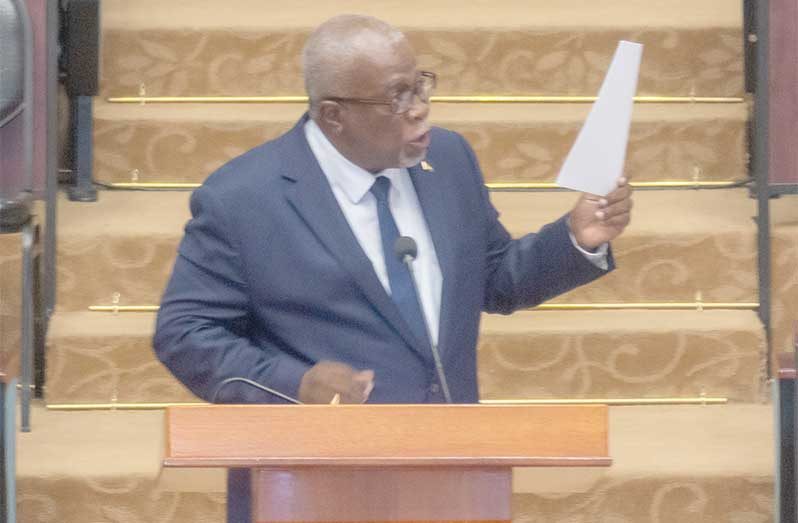Seeking to bolster environmental safeguards in Guyana’s growing oil and gas sector, the Oil Pollution Prevention, Preparedness, Response and Responsibility Bill — commonly referred to as the “Oil Spill Bill” — was tabled on Monday during the 102nd sitting of the Twelfth Parliament.
The bill was presented for its first reading by Prime Minister Brigadier (Ret’d) Mark Phillips, who explained that it is intended to provide for preventative, restorative, and compensatory measures in relation to oil spill incidents within Guyana’s national territory.
Prime Minister Phillips highlighted that the legislation focuses specifically on the prevention of pollution from oil, oil spill preparedness, response, cooperation, and financial responsibility.
It also caters for the establishment of a national competent authority to oversee the management of these areas.
The bill aims to establish a modern and comprehensive legal framework to govern the prevention of, preparedness for, response to, and liability arising from oil spill incidents. It will apply to installations and facilities involved in petroleum activities, such as drilling, exploration, production, storage, handling, and transportation of petroleum products.
Additionally, it ensures that every person or entity involved in petroleum activities like drilling, exploring, producing, storing, handling and transportation of petroleum products is held to high standards in both operational safety and environmental responsibility.
The bill also enshrines liability for persons who are responsible for any form of oil spilling or negligent oil operations that lead to damages of any kind.
Just last week, Attorney General and Minister of Legal Affairs, Anil Nandlall, stated, “Significantly, it doesn’t limit liabilities, and it provides very clearly for the responsible party to be held liable for all damages occasioned by the act or omission of that party.”
At that time, he highlighted that the piece of legislation brings to Guyana international standards and international duty of care, which the law requires at the international level for operators in the oil and gas sector to be measured by.
Additionally, the bill entails a dispute resolution mechanism but also preserves the right for any aggrieved person to approach the high court to seek remedies, which include compensation as it relates to petroleum activity that may have caused damage to one’s property, person or the environment.
Thus far, Guyana has taken several proactive measures to strengthen its oil spill preparedness and response capabilities.
Among these efforts is the passage of the Petroleum Activities Bill 2023, which replaces the outdated Petroleum Exploration and Production Act of 1986.
This new legislation ensures responsible and modern management of the petroleum industry.
Additionally, the government has significantly strengthened oil permits and environmental regulations to minimise liabilities and manage environmental and economic impacts.
For instance, in the event of excessive flaring, companies are required to compensate at a rate of US$5 per ton of carbon dioxide equivalent.



.jpg)








